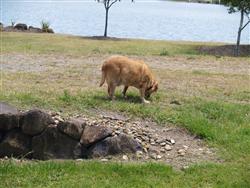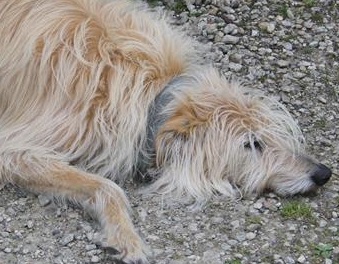Study the behaviour and physiology of companion animals
 Learn more about the behaviour and physiology of companion animals.
Learn more about the behaviour and physiology of companion animals.
- Study this excellent course in your own time and at your own pace.
- Start a new career working with pets and providing support in the pet industry.
- Learn animal husbandry, business and management skills.
- Course duration: 600 hours of self paced study. Start at any time to suit you and work at your own pace.
HOW DO YOU LOOK AFTER PETS?
No matter what type of pets you are looking after there are some general needs that must be fulfilled. These include:
Food
All animals will require sufficient food, of the right type/s, and at the right intervals. This will obviously vary considerably from animal to animal, for example dogs usually have diets with a high meat component, some birds will have diets high in seeds, some birds may require such things as insects or meal worms, rabbits and guinea pigs may be fed on grasses and vegetable scraps, while reptiles may be fed with live food (e.g. mice, frogs).
Understanding what types of food your animals require is very important, it is also important that you understand differing food requirements at different stages of their life (e.g. young versus mature animals, when pregnant or feeding young). To ensure the best health of your animals, only use good quality food that has been properly stored (e.g. not perished, or mouldy, or infested with pests). Discuss with your vet to ensure your animals are receiving adequate nutrition from their diet, and to determine ways in which you might need to modify it to improve their all round nutrient intake.
Although it can seem nice to treat pets to human foods and sweets, or to leave food constantly available to your pet, it can be very detrimental to their health. Certain foods that are fit for human consumption can in fact be toxic to pets. Allowing your pet to eat constantly, or providing them with a poorly balanced diet can lead to obesity. This is an increasing problem and has serious complications for animals, they are unable to move as freely and become sedentary, and they can develop joint problems such as arthritis, as well as injuries related to the stress on their spines from the additional weight. Heart disease is also more likely along with complications such as obesity related diabetes.
Watering
Nearly all animals will require regular watering, some having high water requirements. Water should be of high quality, and plenty provided. The types of water containers provided should be suitable to the types of animals you are watering, for example deep, steep-sided containers may pose a drowning risk to small animals, including birds, while containers or troughs used by multiple numbers of a particular pet should provide sufficient room (access) so that there is not any great degree of competition between the animals for the water - this is particularly important on days of high water need (i.e. very hot days), or with more aggressive animals.
Water containers/sources should also be placed in suitable position where they are stable (not easily dislodged or knocked over), where they will not be contaminated by debris or animal droppings falling into them, and easily accessed by both your pets to drink, and you to fill them. For some animals the containers may need to be placed in a position that provides some degree of shelter and/or protection from other animals. Placing water in a position sheltered from the sun will also reduce evaporation rates. Ideally at least two, and depending on the space available and animals you are watering, possibly more separate containers should be available, in case one becomes fouled, or is knocked over. Animals can quickly suffer or die if sufficient water is not available on a hot day. Containers should be regularly inspected for damage, and regularly and thoroughly cleaned to minimise pest and diseases problems. Any automatic watering systems should be regularly maintained, and regularly checked to ensure they are operating properly.
Shelter/Containment/Protection
Caging and fencing can serve a number of functions. This includes:
- Containment - ensuring you pet/s don't escape.
- Shelter - providing protection against the elements.
- Protection - both against other animals (predators), and to protect other animals and
people from your animal/s (e.g. snakes, aggressive dogs).
Any caging or fenced area should have the following features:
- Size - sufficient to cater for the animal’s needs
- Strength – sufficient to contain the animal, to keep other animals out and to withstand the local weather conditions
- Safe - no sharp edges, or protruding parts, ensure materials aren’t toxic to the animal (treated timbers, rusted metals, asbestos sheeting etc).
- Position – providing shelter for the animal and being securely fixed into place
- Access - for cleaning, providing food and water. Access should be secured to prevent escape.
It is crucial that any containment area is regularly checked over and maintained properly.
Maintaining Health

Good hygiene is critical. This includes such things as maintaining food and water quality, cleaning out wastes regularly, and controlling pests and diseases. Regular preventative measures for controlling pests and diseases are vital. Examples include spraying cages/shelters, regular worming treatments, vaccinations, flea and tick treatments, regular inspections for signs of problems in the animals yard as well as on the animal itself, regular grooming and dental care, and quarantining animals that are suspected or known to have pest or disease problems can significantly reduce the likelihood of problems occurring, and minimise their spread when they do occur. Regular veterinary check ups are important, to detect any conditions that may otherwise go unnoticed.
It is important that animals receive adequate opportunity for exercise to avoid them becoming overweight and unhealthy. Many smaller pets thrive on human contact and it is necessary to spend time interacting with them, playing, wrestling or during grooming.
Student Comment:
"
Mr Douglas is a fantastic tutor, I have learnt so much from him. He
gave comments that aided in understanding and was always positive and
encouraging....makes me feel not so distant. His tutoring made me strive
harder."
- Lisa
WHAT NEXT?
Register to Study - Go to “It’s Easy to Enrol” box at the top of the page and you can enrol now.
or
Get Advice – Email us at info@acsedu.co.uk OR
Use our FREE COUNSELLING SERVICE to contact a tutor
CLICK TO CONTACT US